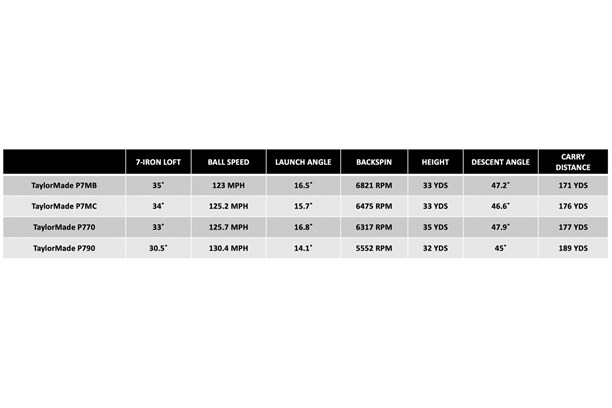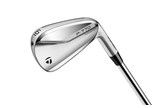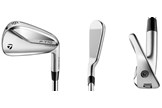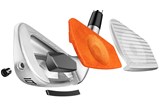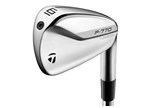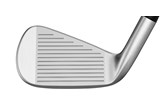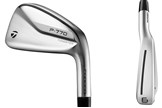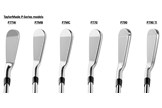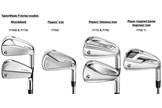TaylorMade P770 (2020) Iron Review
Last updated:
-
At a glance
- TG Rating
- Owner Rating
What we say...
The new TaylorMade P770 iron blends distance with forgiveness in a compact players head shape.
TaylorMade’s P790 irons have sold to everyone from +4 to 24-handicappers, but the brand know 30% of golfers who’ve brought a set are low single figures (seven) and below, which is who these new hollow-body irons are aimed at.
RELATED: New TaylorMade P790 irons revealed and tested
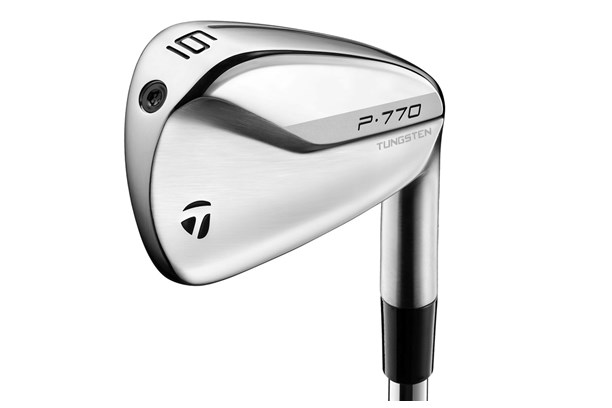
P770 irons are for better players who want the extra pop that fast face technology delivers, but in a smaller package. The Carlsbad-based brand have used the DNA recipe (great performance, fantastic sound and feel and gorgeous looks) of P790 in designing the new multi-material P770, and they’re very excited about pitching the siblings against each other.
Related: TaylorMade P7MC irons review
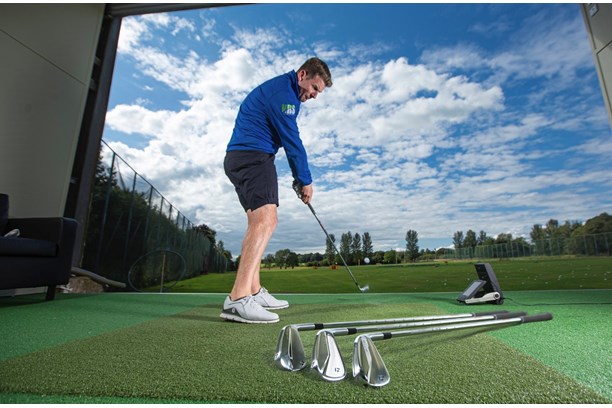
Thanks to weaker lofts than the P790 iron, TM say the P770 irons launch higher and spin more, yet give up virtually no carry distance. The body is cast from 8620 carbon steel, like lots of modern wedges, but a fast, forged 4140 steel face, speed pocket and internal speed foam guarantee great ball speed, sound and feel.
There’s minimal offset and a thin top line, but thanks to 46g of tungsten being positioned internally the centre of gravity is lower, and you get improved stability.
RELATED: Best Irons
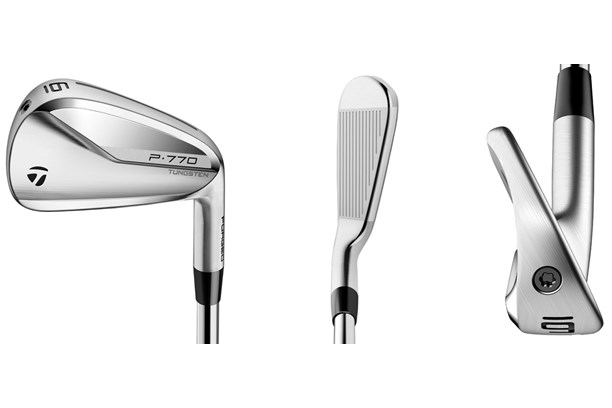
What you need to know about the P770 iron
Tour-inspired shaping
When you’ve got three of the five best golfers on the planet on staff, you obviously get their input into any new player’s iron design. TaylorMade say the new P770 is very close in shape to the previous P760 iron, just with a slightly longer blade length. Expect a thin topline and minimal hosel offset as well as a super clean look at address. TM refer to this model as a compact player’s distance iron.
Looking to buy a TaylorMade P770 iron?
The right iron can make all the difference to your game! Check out our best golf irons buying guide to help you find the perfect club.
Ready to buy now? Here are some of the best places to look for deals on TaylorMade P770 irons
UK Deals
- View deals on eBay
- View deals on Golfbidder
US Deals
- View deals on eBay
- View deals on Golfavenue
RELATED: Tested – Best Forged Irons
Forged hollow body construction
The new P770 iron has a multi-material head with a cast 8620 carbon steel body (the material most commonly used in wedges today) and a forged 4140 face. Up to 46g of tungsten weighting is strategically positioned towards the toe to help create a high launching ball flight, and add stability. Ultra-light speed SpeedFoam inside improves sound and feel, whilst also pushing the irons thin face tech to it’s limits.
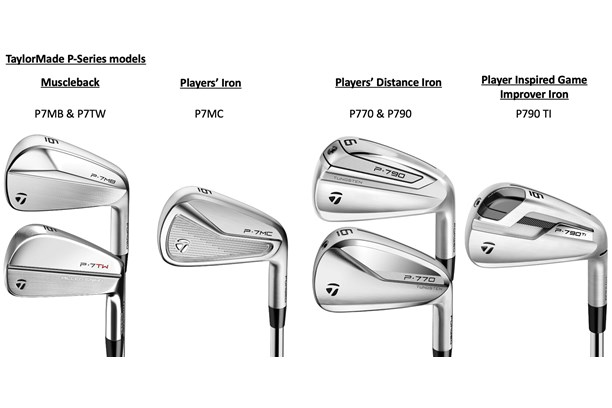
Related: TaylorMade P7MB irons review
Straight through Speed Pocket
A Thru Slot Speed Pocket in the sole means the bottom of the face is not attached to the sole, the idea increases face flex and and improves ball speed, particularly when shots are hit low on the face. Just like TaylorMade SIM drivers there’s also Inverted Cone Technology to improve ball speed retention on off-centre hits.
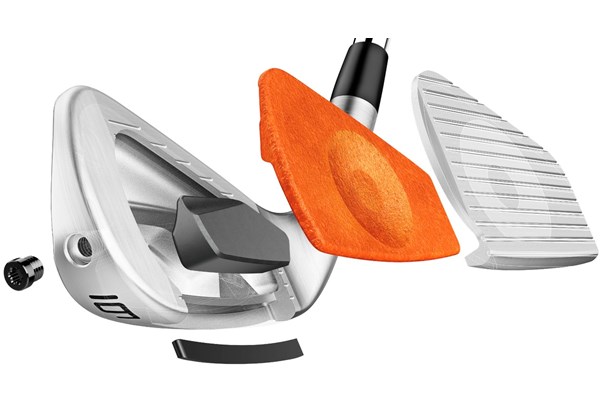
Data comparison: TaylorMade P770, P7MB, P7MB and P790 irons
RELATED: Which TaylorMade putter best suits you?
Verdict: TaylorMade P7MC iron
It’s not hard to see early-on that TaylorMade have hit a massive home run with the P770 irons. Squeezing everything golfers loved about the P790 into a smaller chassis is a genius move. Our guess is that many golfers who were looking at the P790 as their next irons won’t take too much convincing the P770 might now be the better option. Especially when you realise the two are quite closely matched for forgiveness.
If you’ve ever been in doubt as to how much performance fast flexible face tech brings to the party, well 6 yards of 7-iron carry distance difference (compared to the P7MB muscleback iron) for our test pro, pretty much says everything you need to know. Don’t be surprised though to see the P770 long irons, which give extra pop and forgiveness over a traditional cavity back iron, appearing in some high profile tour pro bags soon.
How do you decide between the P770 and P790? Well look at what you’re after within your own game. Our test data shows the stronger lofted P790 (30.5° – 7-iron) can generate 5mph more ball speed and 12 yards more carry distance than the P770 (33° – 7-iron), which for many club golfers will be a trade-off they just aren’t willing to make.
RELATED: TaylorMade Hi-Toe Raw wedge review
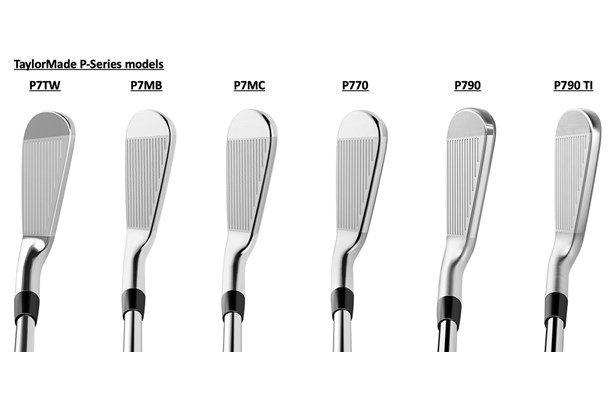
For all that extra speed and distance you can lose up to 800RPM of backspin (as our test data shows) with the P790, which for really good players will mean the P770 becomes the preferred option. The P770’s are a fantastic looking and performing iron, we reckon strong single figure handicappers will absolutely adore them, the ability to mix and match with the P7MB and P7MC irons, to make your own personal combo set is just the icing on the cake.
RELATED: Tested – Which TaylorMade irons is right for me?
WATCH: Best New Forged Iron 2020
Think about your mid and long iron selection
When the PGA Championship teed off in August there was huge interest around the new set of TaylorMade P7MB irons in Rory’s bag. But Tommy Fleetwood putting the new P770 4- and 5-iron in play was just as big news for us.
Fleetwood’s decision is similar to the one many good club golfers will face this year (thanks to more forged irons being available as individual clubs and combo sets) – he is trying to get more pop from the mid and long irons.
Strong-loft, fast-face irons have been much maligned over the years as some reckon they hit hard, low-spinning bullet shots that don’t stop on a green. But our results show a very different picture with the latest long irons.
RELATED: Love KBS iron shafts? Should you try the new KBS TD driver shaft?

The fast-face TaylorMade P770 launched shots quicker with more backspin and a steeper descent (than the weaker lofted P7MC), which means the ball will stop more quickly on long approaches, whilst giving up no carry distance – which of course is just what most Tour pros want.
What does it mean for you? Use the option of creating your ultimate combo set wisely. From what we’ve seen it’s a new dawn for forged irons and means you can finally get the best performance from every iron in your bag.
RELATED: Which Lamkin grip is best for me?
WATCH: Best 2022 Players’ Distance Iron video
What TaylorMade say about the P770 iron
“Designed to deliver P790-like performance in a smaller package, the all-new P770 leverages a forged hollow body construction to pack as much distance and forgiveness as possible into a compact player’s shape,” said Matt Bovee, Product Creation, Irons Category.
TaylorMade P770 (2020) iron: Specs
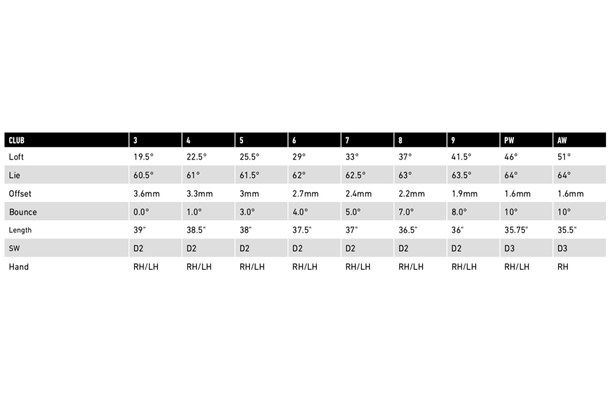
We asked Matt Bovee, TaylorMade’s Head of Product Creation for Irons, to explain the story behind the new TaylorMade P7MB, P7MC and P770 irons.
How much of a challenge is it designing irons for the world’s best players?
It’s a labour of love but at TaylorMade we have such a wealth of knowledge to build off. We’ve had an incredible stable of players for a long time, and we continue to build off that platform, it’s probably not quite as challenging as people might think.
We have a great feel for what our players are looking for, and we marry that with whatever we’re trying to create. With the P7MB and P7MC you can dial in the launch and spin quickly where models that chase speed tend to be more difficult as players know the launch window they want.
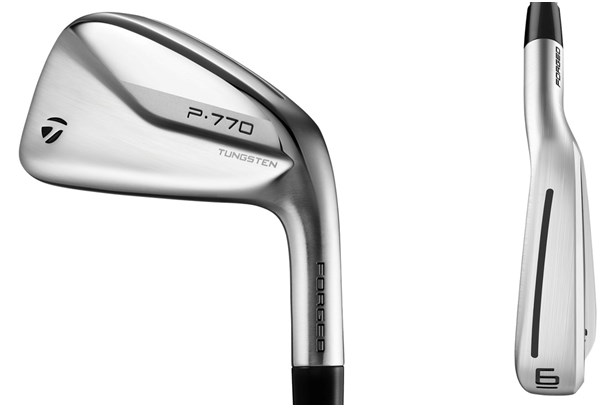
Do you feel more pressure when designing for the world’s best players or is it more difficult designing a game improving SIM Max iron which has to sell to thousands of golfers?
It’s pretty equal, but it’s different types of pressure. With the P7MB and P7MC you have to satisfy a handful of players and once you tick that box everything else just falls into place. The game-improver iron or players distance product to get that equation right, like we did with the update on the P790 in 2019, there’s a lot of pressure.
But because we got that so right there wasn’t so much pressure creating the new P770 because we knew there was such a successful package.
Related: New TaylorMade SIM UDI and DHY driving irons
How important is selling the new P-Series irons as split sets? You’ve not done that for a while.
Everybody plays golf differently and everyone has their own style of play. So instead of trying to create a perfect combo set like we did with the P760, which was a progressive flow set, which was great for some players, sthere were others who still wanted a single piece forged cavity back.
By giving players the ability to build the set they want, they can effectively create their own flow set. It means golfers can opt for something that’s more player orientated or distance orientated, it just gives more people more options.
Related: TaylorMade MG2 TW wedges revealed
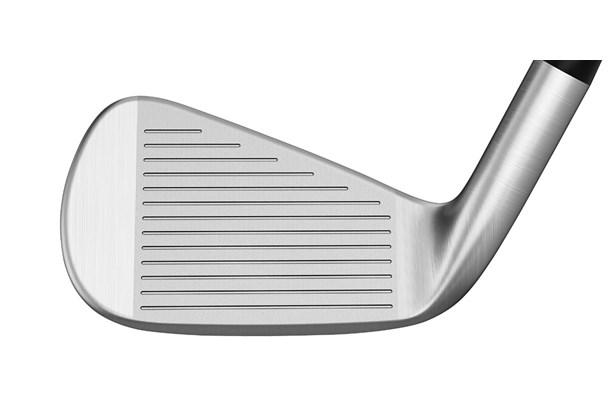
There’s now six models in the family meaning players up to a 16 or 18 handicap (the P790 Ti iron) can play a P-Series iron. Why do you need six models?
Regardless of handicap we want players to aspire to be better, so we have clubs that project an image like ‘I’m a player too’ or ‘I’m working towards being a player’. The P790 Ti is an experiment, we wanted to see how much performance we could pump into if costs aren’t a factor and go all out on materials.
For us we see four core irons the P7MB, P7MC, P770 and P790, that’s where the series really shines and will do the bulk of its volume.
How much difference is there in inertia between the new models?
Obviously the MB has the least amount of inertia, it does have a little more forgiveness than the P730 though as it has a longer blade length. The MC has a little more (than the P7MB) forgiveness because of the perimeter weighting and the blade length is a touch longer. It’s a moderate step up from the MB, I like to say it’s got just a hint of forgiveness.
The P770 is a pretty big jump from the MC and there’s two reasons why. It’s got a massive tungsten weight on the toe side of centre and there’s a longer blade length, which drives up the MOI. The model also has a fast face and Inverted Cone Technology which expands the sweet spot, and that’s another component of forgiveness.
It is remarkably close to the P790 in terms of forgiveness, which is impressive considering the head size.
READ NEXT: TaylorMade Spider FCG putter offers blade feel in a mallet head

Review written by: Simon Daddow
Job title: Today’s Golfer – Equipment Editor
Product Information
TaylorMade P770 (2020) Iron
RRP: £1299
Availability: 3 - PW, AW
Stock shaft: KBS Tour
Stock grip: Golf Pride Z-Grip +2
7-iron loft: 33° 7-iron offset: 2.4mm
Forgiveness category: Two (see other forgiveness category two irons here)
